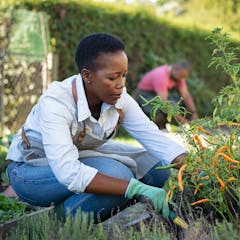
Articles on Indigenous
Displaying 1 - 20 of 624 articles

A website curated by Indigenous historians shares reading lists about Indigenous histories in Turtle Island (North America) related to over 40 topics, as well as a podcast offering oral histories.

The psychotropic allure of the ayahuasca plant for hundreds of thousands of non-Indigenous consciousness seekers is raising many concerns.

Our new report makes 12 recommendations for how industry, government, educators and First Nations communities can create jobs and fulfilling careers in clean energy.

Indigenous knowledge is a boon to environmentally responsible efforts, but only if the data — and its holders — are treated with respect.

The Winnipeg-based series has screened over 100 films in multiple genres by Indigenous filmmakers, and brings filmmakers together with audiences as a form of public education.

Limiting who public space is for and how it can be used is central to settler colonialism both in Canada and other settler colonial places. Here’s how it’s used to silence and criminalize dissent.

All canoe trips pass through the territories of Indigenous Peoples who are rightsholders to those lands. How can canoers work to account and reconcile for colonialism in Canada?

Collaborative research by archaeologists, environmental scientists and tribal elders combines science and Indigenous knowledge to tell the story of centuries of life at a glacier’s edge.

While there is no simple answer to the question, our experts all agree Australia has a serious problem when it comes to racism.

The recent title lands agreement between British Columbia and the Haida Nation is historic and inspiring, but also long overdue in light of decades of rulings by international human rights bodies.

This episode explores how colonial history has affected what we plant and who gets to garden. We also discuss practical gardening tips with an eye to Indigenous knowledge.

The National Aboriginal Hockey Championship honours the resiliency of Indigenous Peoples while presenting youth with the opportunity to grow personally and professionally.

Half of the women homicide victims in 2022-23 were killed by a former or current partner.

Indigenous media have rapidly expanded over the last 30 years with Indigenous media makers gaining greater control of their narratives.

Truly fostering accessible educational opportunities for deaf students can only happen with ongoing political and financial support.

A better understanding of Indigenous businesses in Australia could build on the already significant contribution they make to the economy.

Indigenous people have long spoken about coercive practices of officials and experts around birth control, as late as the 1960s. Now historians are finding evidence in the government’s own records.

Research partnerships with the people and communities affected help to challenge health inequities, and support person-centred care in health systems.

For centuries, colonial powers have used starvation as a tool to control Indigenous populations and take over their land and wealth. A look back at two historic examples on two different continents.

U.S. laws on the repatriation of Indigenous artifacts and remains still uphold inequities in the relationships between Indigenous people and the agencies holding their materials.





